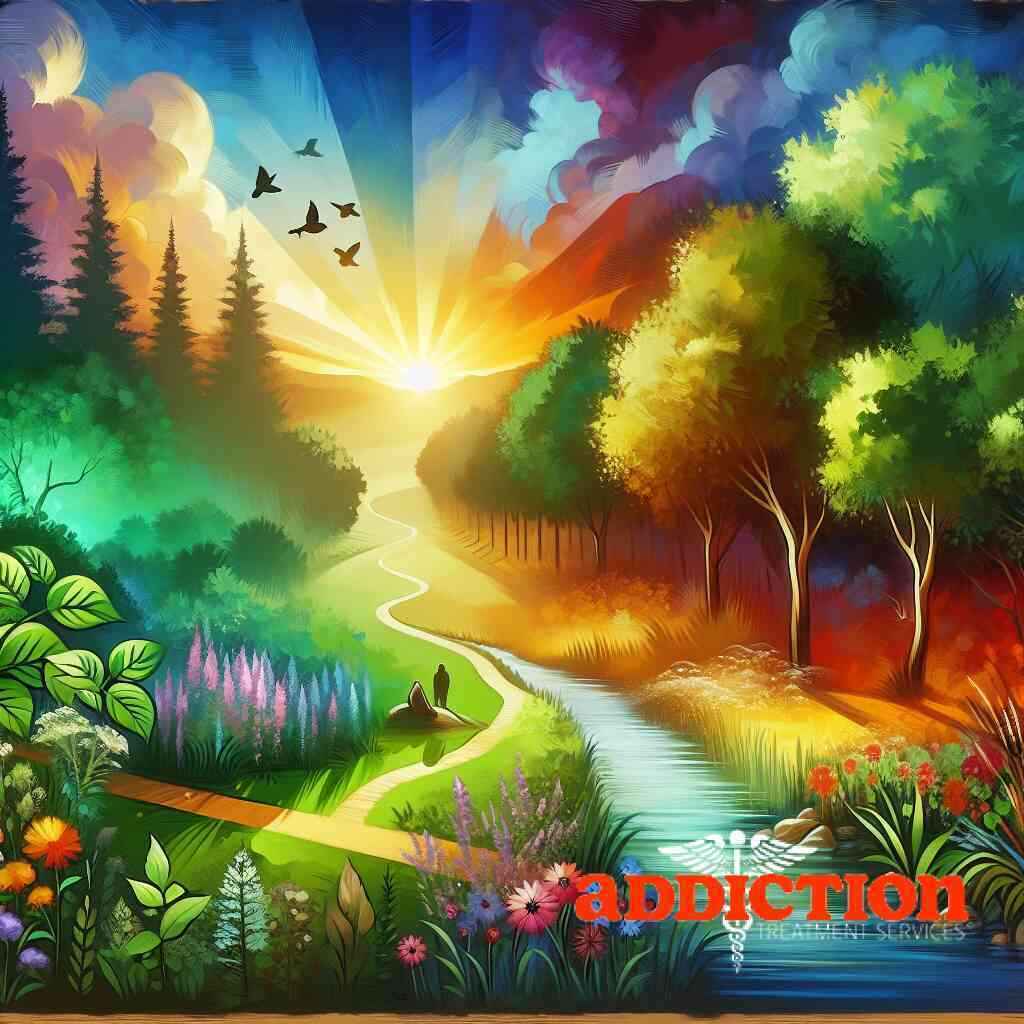 Posted On: 08/06/2025
Posted On: 08/06/2025Embarking on the Journey to Recovery: A Holistic Perspective
Understanding the Complexity of Substance Use Disorders
Substance use disorders aren’t merely issues of willpower; they are intricate conditions that demand a comprehensive understanding and multifaceted interventions. Acknowledging the layered complexity of addiction is critical to initiating a successful recovery journey. These disorders often intertwine with mental health challenges, forming a knot of dependencies that can deeply affect one’s life. Recognizing this complexity is the first step in crafting effective recovery paths that address both the surface symptoms and underlying causes of addiction. For those grappling with substance use disorders, gaining a nuanced understanding of their condition can facilitate a more informed approach to recovery, guiding them toward achieving lasting sobriety.
The Role of Comprehensive Addiction Resources in Recovery
In any recovery journey, comprehensive addiction resources are the linchpin that supports long-term success. These resources encompass a broad spectrum of services, tailored to address the multifaceted nature of addiction. From detox centers to comprehensive addiction treatment services, the goal is to provide a continuum of care that adapts to individual needs over time. Effective recovery paths are built on a foundation of thorough resources that offer physical, emotional, and psychological support throughout the process. By leveraging these resources, individuals can navigate their recovery journey with the assurance that they are supported every step of the way, ensuring their behavioral transformation is both profound and enduring.
Identifying the Right Addiction Treatment Services Near You
Finding the right addiction treatment services near you is a crucial aspect of the recovery process. The search can be overwhelming, given the plethora of options available, each promising different approaches and outcomes. A meticulous evaluation of these services is necessary to determine which programs align best with personal recovery goals. Factors such as the type of substance being misused, the severity of the addiction, and any co-occurring mental health issues must be considered when choosing a treatment path. Moreover, accessibility of services like outpatient care or residential treatment, understanding local options like addiction treatment options in Georgia, and personal preferences play pivotal roles in this decision-making process. By making informed choices, individuals enhance their chances of finding a path that resonates with their unique journey toward recovery.
Mapping Out Personalized Treatment Programs: The First Step
Detoxification Services: Paving the Path to Sobriety
Detoxification services represent a critical first step in the journey toward overcoming substance misuse. This process is designed to cleanse the body of the substances it’s become dependent on, creating a foundation for continued recovery. In most cases, detox begins in a controlled environment where medical professionals can manage withdrawal symptoms effectively. The careful supervision ensures a safer and more comfortable experience, providing individuals with the strength to advance in their recovery process. Customized treatment is paramount here, as it addresses each person’s unique health needs and substance use history, setting the stage for a more effective rehabilitation journey.
A key element in detox is the use of drug detoxification techniques, which are varied and tailored to the type of substance involved. Moreover, it plays a pivotal role in reducing the risks of severe health complications and offering psychological support. Detoxification is not an end in itself but a necessary bridge to further addiction treatment services, where a broader therapeutic intervention can take place. By successfully navigating this initial phase, individuals prepare themselves for more in-depth treatments that holistically address their dependency issues.
The Crucial Role of Medication-Assisted Addiction Therapy
Medication-assisted addiction therapy (MAT) is a cornerstone in modern addiction treatment, utilized as a powerful tool to enhance recovery outcomes. MAT integrates FDA-approved medications with counseling and behavioral therapies, offering a comprehensive approach to treating substance use disorders. For many, combining these medications with a supportive therapeutic environment significantly reduces cravings and withdrawal symptoms, fostering an environment conducive to recovery. This approach not only addresses the physical aspects of addiction but also fortifies mental resilience, crucial for long-term sobriety.
The application of MAT varies based on the type of substance dependency, involving tailored medications that align with individual recovery needs. This therapy has shown great success in managing dependencies, especially for opioids and alcohol, often improving retention in treatment programs. Furthermore, MAT can be seamlessly integrated into both residential and outpatient treatment plans, providing adaptable solutions across various care settings. As such, it becomes an integral component of a personalized treatment program, helping to bridge gaps between medical and behavioral health services.
Residential versus Outpatient Care: What to Choose and Why
Choosing between residential and outpatient care is a significant decision in the recovery journey, influenced by several factors including the severity of the addiction, personal circumstances, and availability of local services. Residential treatment centers offer an immersive, structured environment where individuals can focus entirely on recovery without the distractions of everyday life. This level of care is often recommended for those with severe addictions, providing intensive therapy and constant support.
On the other hand, outpatient care offers flexibility, allowing individuals to continue with daily responsibilities while attending regular therapy sessions. This option is ideal for those with milder substance use disorders or as a step-down approach following residential treatment. Intensive outpatient care in Delray Beach is an example where individuals can access robust support while maintaining life’s routines. Both methods have their merits, and the choice often depends on personal needs, the extent of family support available, and specific treatment goals.
By evaluating these options carefully, individuals can develop a personalized approach to recovery that is both effective and sustainable, ensuring a path that supports long-term sobriety and personal growth. This decision is integral in establishing a solid foundation for a successful structured recovery process, tailored to each individual’s journey.

Innovative Approaches in Addiction Treatment: Beyond the Traditional Methods
Specialized Dual Diagnosis Treatment for Co-occurring Disorders
In the landscape of substance use disorder treatment, the recognition of co-occurring mental health conditions has steered the focus toward dual diagnosis therapies. This integrated approach is pivotal for those whose addiction is compounded by additional mental health disorders, offering a tailored treatment path that simultaneously addresses both challenges. By deploying specialized dual diagnosis treatment, individuals can achieve more comprehensive recovery outcomes. This includes the use of sophisticated therapeutic methods to manage disorders ranging from anxiety and depression to more complex conditions like bipolar disorder alongside addiction.
Understanding the nuances of dual diagnosis treatment is critical in customizing therapy plans that encompass both psychological and substance-related issues. Dual diagnosis therapies in New York exemplify advanced care models that bridge the gap between mental health care and addiction recovery. This holistic management ensures that individuals receive well-rounded support, minimizing risks of relapse and enhancing overall recovery stability.
Holistic Addiction Programs for Sustainable Recovery
Holistic recovery approaches redefine addiction treatment by focusing on healing the mind, body, and spirit, rather than merely addressing the addiction itself. These programs incorporate a variety of therapeutic practices designed to foster long-term recovery through sustainable lifestyle changes. Techniques such as meditation, yoga, nutritional counseling, and acupuncture are integrated into traditional therapy modalities to support individuals in achieving a balanced and healthy life.
Holistic programs emphasize the importance of overall wellness, which is essential for sustaining recovery beyond the treatment phase. By engaging the whole person through comprehensive treatment plans, clients learn to build healthier coping mechanisms and relationships. Holistic recovery approaches in California highlight the commitment to these comprehensive strategies, portraying how innovation can effectively enhance the recovery journey.
The Integration of Behavioral and Mental Health in Recovery
The integration of behavioral and mental health services within addiction treatment pathways creates a robust framework for addressing the complex needs of individuals battling addiction. This dual-faceted approach ensures that treatments are not solely focused on substance misuse, but also on the underlying behavioral patterns and mental health challenges that contribute to addiction.
By incorporating therapies such as cognitive-behavioral therapy and motivational interviewing, treatment programs can offer multifaceted support. This integration is crucial as it broadens the scope of intervention, allowing for more personalized and effective treatment plans. Substance use disorder recovery support is often enhanced through these combined services, fostering environments where individuals can address the root causes of addiction while building resilience skills essential for sobriety. The convergence of these practices not only stabilizes the recovery process but also empowers individuals to lead fulfilling lives post-treatment.
Building a Strong Recovery Support Network: Your Lifeline to Long-term Sobriety
Support Services for Addiction Recovery: More Than Just Meetings
Support services form the backbone of a successful recovery journey. Beyond conventional meetings, a robust network offers emotional, psychological, and practical aid, crucial for sustaining long-term sobriety. These services often include family therapy sessions, community support programs, and access to mental health services centers. By engaging in diverse support systems, individuals benefit from a sense of community, helping mitigate feelings of isolation and fostering a supportive environment.
A comprehensive support network enhances motivation and accountability while providing platforms for sharing experiences and learning from peers. Moreover, integrating therapy sessions focused on family dynamics can significantly improve recovery outcomes, ensuring that loved ones are part of the healing process. Ultimately, these support services go beyond merely addressing addiction; they cultivate resilience, aiding individuals in overcoming obstacles and embracing a healthier lifestyle.
Overcoming Challenges: Withdrawal Symptoms and Relapse Prevention
Managing withdrawal symptoms effectively is often one of the most crucial aspects of the recovery process. These symptoms can range from mild discomfort to severe health challenges, potentially threatening the recovery journey. Recognizing and preparing for these symptoms, with the aid of healthcare professionals, increases the likelihood of overcoming them successfully. Treatment facilities often emphasize coping strategies, thus equipping individuals with tools to manage cravings and distress during withdrawal.
Relapse prevention forms another pillar of maintaining sobriety. This involves strategic planning, identifying high-risk situations, and developing coping mechanisms. Regular therapy sessions, lifestyle changes, and ongoing support can significantly reduce relapse risks. Incorporating personalized relapse prevention plans into treatment programs empowers individuals to anticipate triggers and maintain control over their recovery journey.
Early Intervention and Intensive Outpatient Addiction Care
Early intervention is a critical facet of addiction treatment, often determining the trajectory of one’s recovery journey. Spotting early signs and acting swiftly can prevent the exacerbation of substance use disorders, paving the way for timely intervention and treatment. Programs designed for early intervention focus on education, motivation, and behavioral alterations, setting the stage for successful long-term recovery.
Intensive outpatient addiction care offers a flexible yet structured treatment pathway, accommodating individuals who need substantial therapy without a full residential stay. Such programs are particularly effective for those balancing other life responsibilities, such as work or family. By engaging in intensive outpatient programs, individuals benefit from intensive therapeutic sessions that foster recovery while allowing access to daily support. These programs often integrate both group and individual therapy, offering a comprehensive approach to overcoming addiction. The adaptability of outpatient care empowers individuals to sustain progress and strengthen their recovery support network.

Concluding the Journey: Culminating a Structured Recovery Process
Reflections on Substance Use Disorder Treatment Success
As individuals move through different stages of the recovery process, reflecting on successes achieved during substance use disorder treatment becomes an essential exercise. Each milestone met and each challenge overcome signals personal growth and resilience. Success in these programs is not only marked by achieving sobriety but also by the enhancement of life quality and emotional health. Individuals who engage actively in addiction treatment services often experience a profound transformation that equips them to tackle life’s complexities with newfound strength. This success is further amplified when a personalized treatment path involving medication-assisted therapy and comprehensive support networks is employed. Recognizing the triumphs, both small and large, reshapes the narrative of addiction, painting a broader picture of hope and renewal.
Embracing a New Life: The Post-Recovery Transition
Transitioning to life after intensive addiction treatment involves embracing a new identity that is free from the grips of substance misuse. This phase, often full of excitement and new challenges, requires continued support and reinforcement of the skills gained during treatment. It is a time to apply learned behaviors in daily life, foster healthy relationships, and pursue goals previously sidelined by addiction. Embracing this new chapter is facilitated by engaging in ongoing therapy opportunities and support services such as sober living environments, which provide secure, supportive settings for those in recovery. This period of adjustment is not merely about staying sober; it’s about building a life that is enriched by newfound freedoms and aspirations.
Continuing Support: Ensuring a Future Free from Substance Misuse
The journey to a substance-free life continues long after treatment programs conclude. Ongoing support is paramount in maintaining sobriety and preventing relapse, typically involving a combination of regular therapy, participation in support groups, and lifestyle modifications. The importance of support groups with AA meetings is a cornerstone in reinforcing recovery, offering peer support, shared experiences, and motivation to remain on track. Additionally, crafting a robust relapse prevention plan aligned with individual needs and triggers can safeguard against potential setbacks. By embedding these elements into their daily lives, individuals in recovery can sustain their commitment to living free from substances, ensuring a future marked by health, purpose, and renewed opportunities.
Frequently Asked Questions
Question: What role do comprehensive addiction resources play in developing personalized addiction recovery paths through leading treatment services?
Answer: Comprehensive addiction resources are fundamental in crafting effective addiction recovery paths. Addiction Treatment Services offers a robust directory of resources designed to meet the diverse needs of individuals dealing with substance use disorders. These resources range from detox centers to advanced dual diagnosis treatment facilities, ensuring that each individual can find services that align with their unique recovery journey. By leveraging these comprehensive resources, individuals can find support at every stage of recovery, from managing withdrawal symptoms to preventing relapse, ultimately helping them achieve sustainable sobriety.
Question: How can medication-assisted addiction therapy enhance recovery in a holistic way, according to Addiction Treatment Services?
Answer: Medication-assisted addiction therapy (MAT) is a core component of the holistic recovery services offered by Addiction Treatment Services. MAT combines FDA-approved medications with behavioral therapies to effectively treat substance use disorders. This approach not only alleviates withdrawal symptoms and reduces cravings but also supports mental well-being, creating a balanced treatment pathway. Thus, it integrates seamlessly into both residential and outpatient addiction treatment programs, offering individuals a comprehensive recovery experience that addresses both physical dependencies and mental health challenges, thereby improving chances of long-term recovery.
Question: How do Addiction Treatment Services guide individuals in choosing between residential treatment facilities and outpatient care options for overcoming substance abuse?
Answer: At Addiction Treatment Services, understanding the nuances between residential treatment facilities and outpatient care options is key to recommending appropriate care paths for overcoming substance abuse. Residential treatment provides an immersive, distraction-free environment ideal for severe addictions, while outpatient care offers flexibility for those with milder dependencies. Our team evaluates factors such as the severity of addiction, personal circumstances, and available local services, ensuring individuals receive guidance tailored to their specific needs. This personalized approach helps individuals make informed choices, thereby enhancing the effectiveness and sustainability of their recovery process.
Question: In the blog titled ‘What are the Best Addiction Recovery Paths through Leading Treatment Services’, how is the integration of behavioral and mental health important for addiction recovery?
Answer: The integration of behavioral and mental health services is pivotal to the addiction recovery paths. By merging these services, Addiction Treatment Services ensures that treatment addresses not just the symptoms of substance misuse but also the underlying behavioral and mental health issues that contribute to addiction. Techniques such as cognitive-behavioral therapy are employed to provide comprehensive support, helping individuals develop resilience against relapse and advance successfully through their recovery journey.
Question: Why does Addiction Treatment Services emphasize the importance of building a strong recovery support network in maintaining long-term sobriety?
Answer: Building a strong recovery support network is essential for maintaining long-term sobriety, as emphasized by Addiction Treatment Services. A solid support system comprising family, peers, and professional resources provides the emotional and practical support necessary for individuals to navigate the recovery process effectively. Participating in support groups, family therapy, and community programs can significantly reduce feelings of isolation and enhance accountability, making them indispensable elements of a sustainable recovery strategy. Addiction Treatment Services facilitates access to these integral support networks, helping individuals fortify their journey towards lasting recovery.


